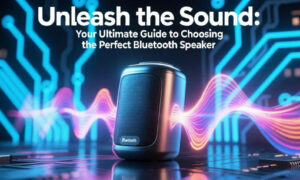In today’s fast-paced digital world, Bluetooth technology plays a crucial role in ensuring seamless connectivity between various devices. However, users of Windows 11 may occasionally encounter challenges with Bluetooth device detection, an issue that can disrupt both professional and personal workflows. This article provides a detailed guide on how to tackle these challenges effectively, focusing particularly on the importance of drivers, including the BCM20702A0 driver for Windows 11, and addressing the concern when “Bluetooth Missing From Device Manager” appears.
The Pivotal Role of Drivers in Windows 11 Bluetooth Connectivity
At the heart of solving Bluetooth device detection issues in Windows 11 lies the understanding of drivers’ crucial role. Drivers are essentially software components that ensure the effective communication between your operating system and the hardware devices attached to your computer. When it comes to Bluetooth connectivity, the importance of having the correct and updated drivers cannot be overstated. This is where the BCM20702A0 driver for Windows 11 plays a pivotal role.
Identifying and Resolving Bluetooth Detection Issues
1. Check Your Bluetooth Hardware
Before diving into software solutions, it’s essential to ensure that your Bluetooth hardware is functioning correctly. Verify that your Bluetooth-enabled devices are charged and within range. If your device has a Bluetooth pairing mode, make sure it’s activated.
2. Enable Bluetooth in Windows 11
It might seem basic, but sometimes the simplest solution is the right one. Ensure that Bluetooth is enabled on your computer. You can do this by going to the ‘Settings’ > ‘Devices’ > ‘Bluetooth & other devices’ and making sure the Bluetooth toggle is turned on.
3. Update the BCM20702A0 Driver
For users experiencing detection issues, updating or reinstalling the BCM20702A0 driver for Windows 11 can be a game-changer. This specific driver is essential for a range of Bluetooth devices. To update it, follow these steps:
- Right-click on the Start button and select ‘Device Manager’.
- Find ‘Bluetooth’ and expand the list.
- Look for any devices listed as ‘BCM20702A0’ or any device with a yellow exclamation mark, indicating a driver issue.
- Right-click on the device and select ‘Update driver’.
- Choose ‘Search automatically for updated driver software’ and follow the on-screen instructions.
4. Run the Bluetooth Troubleshooter
Windows 11 includes a built-in troubleshooter specifically designed to address common Bluetooth problems. This tool is easily accessible and can automatically diagnose and resolve a variety of Bluetooth-related issues. To use this feature, navigate to ‘Settings’, then ‘Update & Security’, followed by ‘Troubleshoot’, and finally ‘Additional troubleshooters’. Within this section, you’ll find the option for ‘Bluetooth’. Selecting this will initiate the troubleshooting process, guiding you through any necessary steps to fix your Bluetooth problems.
5. Restart the Bluetooth Support Service
Sometimes, the Bluetooth support service in Windows 11 might encounter issues. Restarting this service can resolve detection problems:
- Press ‘Windows Key + R’, type ‘services.msc’, and press Enter.
- Scroll down and double-click on ‘Bluetooth Support Service’.
- If the service is not running, click ‘Start’. If it’s running, restart it by clicking ‘Stop’ and then ‘Start’ again.
- Set the ‘Startup type’ to ‘Automatic’ and click ‘OK’.
6. Remove and Re-pair Bluetooth Devices
If a specific device is not being detected, remove it from your list of paired devices and pair it again. This can often reset any connectivity issues.
7. Check for Windows Updates
Sometimes, the issue might stem from an outdated version of Windows. Check for any available updates by going to ‘Settings’ > ‘Update & Security’ > ‘Windows Update’, and install any available updates.
8. Consult Manufacturer Support
If you’re using a specific brand of Bluetooth device and continue to face issues, consulting the manufacturer’s support can provide device-specific solutions. This is particularly useful if the device requires a unique driver or has known compatibility issues with Windows 11.
Conclusion
Bluetooth device detection problems in Windows 11 can range from minor annoyances to significant obstacles in your daily tech usage. However, by following these steps and particularly by ensuring the BCM20702A0 driver for Windows 11 is up-to-date, most issues can be resolved effectively. Remember, staying updated with the latest drivers and Windows updates is key to a smooth Bluetooth experience.
Resolving Bluetooth device detection problems in Windows 11, including situations where “Bluetooth Missing From Device Manager” is a concern, often requires a methodical approach. Keeping your BCM20702A0 driver for Windows 11 updated, along with regular Windows updates, is key to maintaining smooth Bluetooth connectivity. By addressing these issues systematically, you can harness the full potential of Bluetooth technology, enhancing your interaction with the diverse array of devices in your digital ecosystem.

































